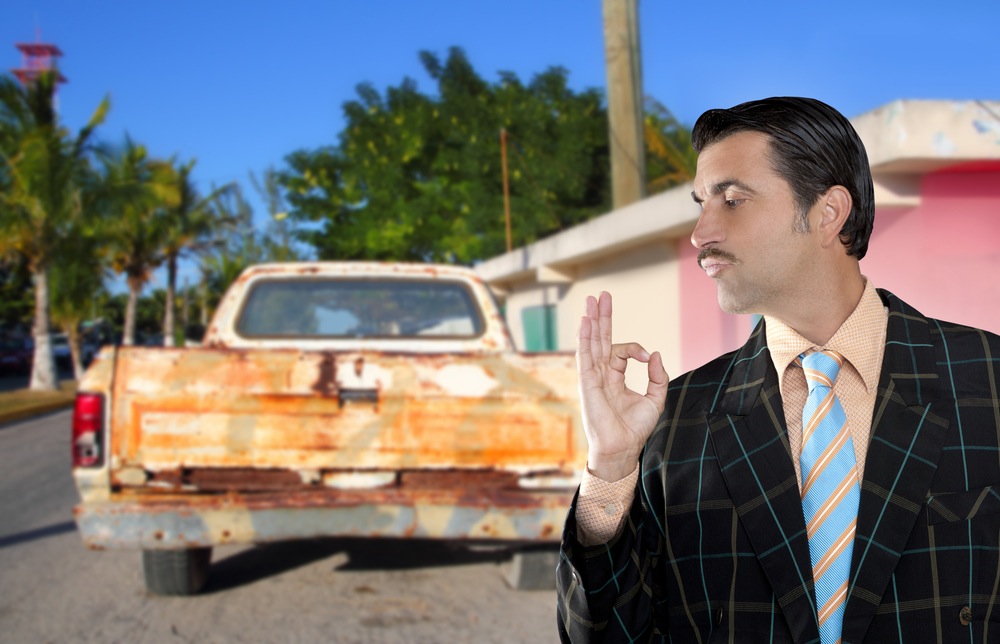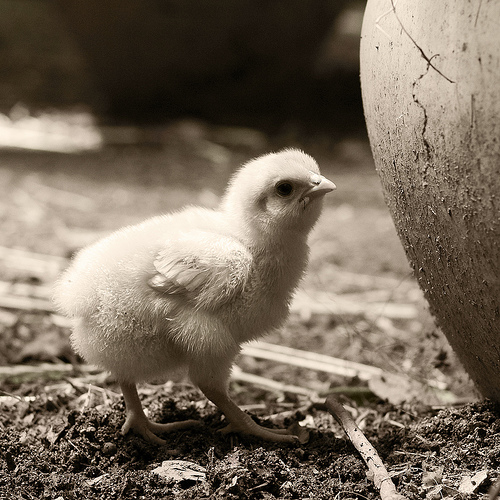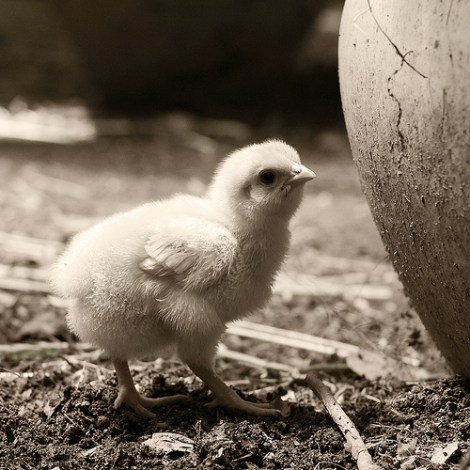We are fans of Northwest Edible Life’s Erica Strauss. Perhaps you remember her rant about healthy eating. It is the best ever. And now she has something to tell you about backyard chickens: You absolutely should not get them.
Unless you’re able to kill them.
It’s pretty simple, really. Hens lay eggs until they’re about three. And then they live for five to seven years after that. Strauss says:
Bear with me here as I do some Urban Homesteader math. One layer hen eats about 1.5 pounds of layer feed per week. (Pastured birds will eat less purchased feed – yet another good reason to buy this book and study it before you design your coop and run.)
If a chicken starts laying at 6 months old (this is a bit later than average but it makes my numbers easy) and has essentially stopped laying by 4 years old, and lives naturally to be 8, a backyard chicken keeper is looking at 3.5 years of egg production time, and 4.5 years of Pets Without Benefits time. That’d be 351 pounds of feed going to a hen that isn’t making eggs!
Current, local prices for the layer rations I feed my hens is $28 per 40 pound bag, or $.70 a pound. Admittedly, this is a bit spendy, but I get the locally produced, happy-hippie, GMO-free feed from the lovely folks at Scratch & Peck. At those prices, it costs $245.70 to maintain a hen into theoretical old age and natural demise while you aren’t getting any eggs.
Perhaps you are fine with that. Perhaps your chicken is cute enough that you want to spend hundreds of dollars to keep it pecking in your backyard. But perhaps it is not. Then, your choices are: Kill that nice chicken and make it into soup, or try to make it someone else’s problem. And, Strauss argues, that second option should not really be an option:
Your chickens, your adoption, your decision, your responsibility to see it through to the end. You do not get to embrace the idea of a more intimate relationship with your food chain and then make that food chain — the food chain you specifically set up — someone else’s problem when shit gets real.
There is a local urban farming message board that is filled — filled — with people trying to give away their three year old chicken to a “good home.” Are you kidding me? You own the chicken. Your home is a good home. And once it’s not, your soup pot is a good soup pot. I once joked to a good friend that I could stock my freezer for the entire year off no-longer-laying hens being given away free “to a good home.”
Some of these people may be vegetarians. But way more just don’t have the courage to kill a chicken, because it’s like a pet — just, you know, not a pet you like enough to spend hundreds of dollars on when it’s not giving you anything in return.
One of the primary reasons for developing alternate food system is to bring the consequences of food choices out from the behind the walls of CAFOs and the like. Shying away from those consequences doesn’t help anyone involved — not even the chicken, which probably still ends up dead.




